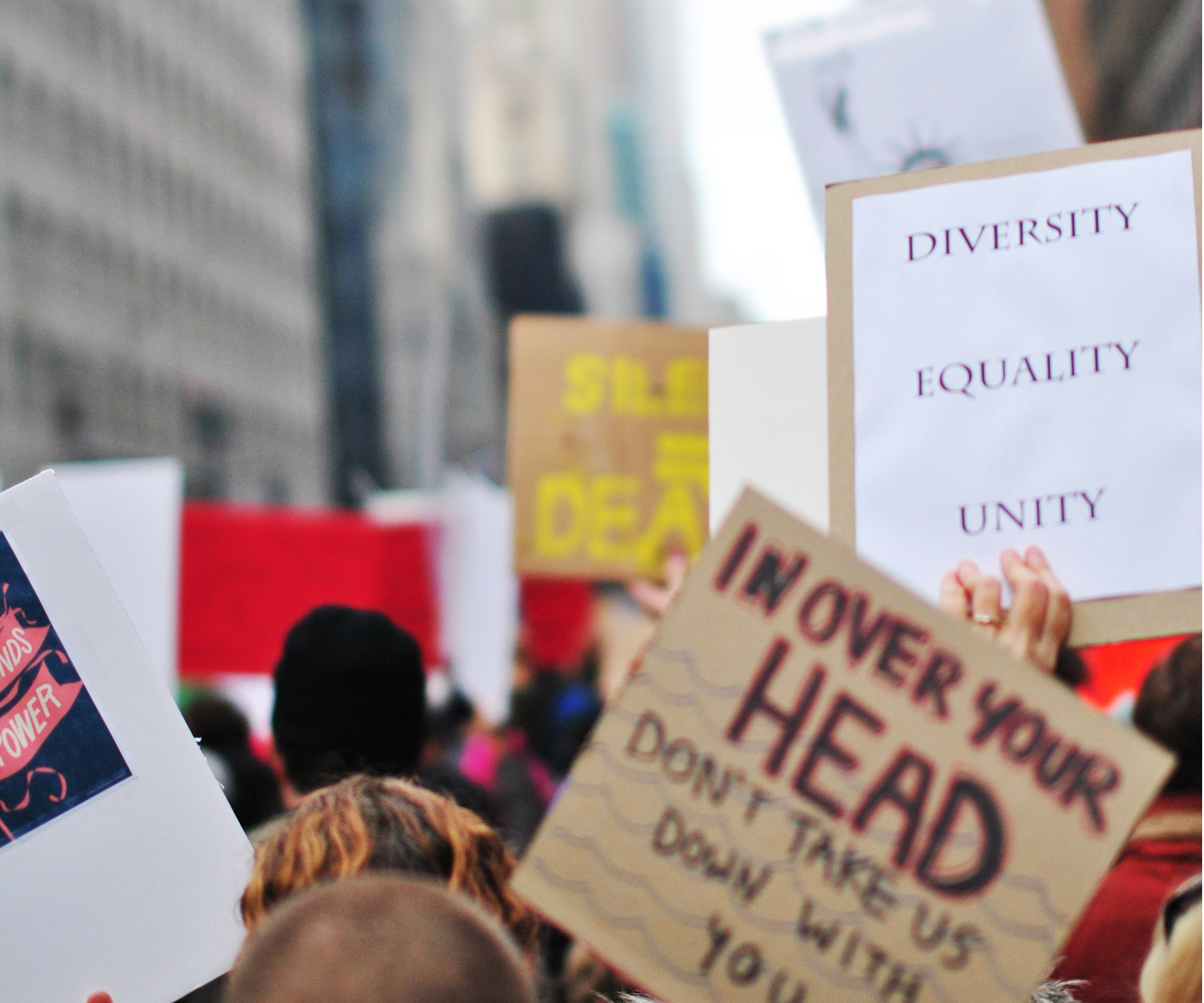To answer the first, most urgent question: Yes, after the first month of the Trump presidency, the American government is in as bad a shape as it looks.
It’s no secret that the executive branch under President Trump had an awful first month. It steered a crooked course between ineptitude and sadism, and made enemies at every turn. The Congress floated along in a state of suspended animation, unable to draw up any bills of substance. Senators and representatives twiddled their thumbs while waiting for the administration to come up with legislation that they would squabble over for months. The judiciary resembled a herd of elephants – old, intelligent, slow-moving beasts drawing together to fend off attacks from hyenas and wild dogs.
And in the press, the social media and the streets, whole armies of Trump lovers and haters were gathering.
Not since the sweeping changes of the Roosevelt presidency in the 1930s have the constitutional “checks and balances” – the structural procedures built into the constitution that ostensibly protect the republic from demagoguery – been put so early and blatantly to the test. And it was just beginning: the next months will be filled with constant battles between the various branches of government.
Maybe the best way to describe the turbulent, terrible month that we just lived through is to say that the new President played two rather distinct roles, neither of which resembled that of any previous president: the public and the private Trump, the Performer and the Shady Businessman.
The public Trump was obsessed with the media – and vice versa. He clung to an image of himself as the star of a reality show whose ratings were in perpetual jeopardy. There was a frenetic, crazed quality to his performance that we didn’t see during the campaign. His tweets were directed at his fans, but they also served to confound and titillate the general public. And in those tweets and raucous press conferences, he acted out a kind of morality play in which he was the victimized child, while the establishment – the media, the courts, all his enemies in Congress and the general public – was the parent who didn’t understand him. Self-righteousness and self-pity were the play’s main themes.
It has to be admitted that his fan base enjoyed Trump’s performance. They shared his sense of persecution and belief in his definition of fake news; most of all, they appreciated his gestures at making good on his campaign promises, though much of what he did was in the nature of public pronouncements rather than proposals to Congress or executive orders.
But Trump supporters are a patient lot, and up to this point seem to be comfortable with someone who voices and respects their complaints rather than a chief executive who can actually do something about them. Plus it all made good TV. We were glued to our newsfeeds and TV news channels night and day. The Trump show was the only show in town. Whether one liked or hated his performance, he managed to keep the whole world enthralled.
The private Trump – the hustler/businessman who outsmarts his adversaries with a combination of swagger and deceit – did considerably worse. His dealings with foreign powers like Mexico, China, North Korea, Australia, Sweden, etc. were inept, cowardly, and indecisive. He continued to exercise his talent for insulting the wrong people. The flood of executive orders – a tactic that he lifted directly from Obama’s last two years in office – were written on the fly; some of them overstepped constitutional boundaries, while others were little more than rhetorical bombast.
The main executive order – the travel ban – threw American immigration enforcement authorities into panic-mode, and changed the world image of the country overnight. The Office of Homeland Security’s plans to scourge the country of more illegal immigrants will further damage that image, not to mention the havoc that it will wreak in thousands of immigrant families. Who will pay for 15,000 new immigration officers? No one’s even asking.
This isn’t the place to examine each of Trump’s cabinet nominations: some were better than anticipated while others may turn out to be as unsavory as they smelled. But the real story was in Trump’s inner circle. Advisers like Stephen Bannon, Stephen Miller, Sebastian Gorka – and many others tucked away in corners of the White House – are a shady bunch whose scope of influence appears to be limitless. Already there have been blowups between the inner circle and cabinet-level appointees who haven’t been able to bring in their own staffs.
We’re going to see many more confrontations between Trump’s braintrust and administration outsiders. We can expect that a number of the appointees will be gone within a year.
What happened to the opposition?
So to the press and much of the public, the Trump Presidency is already an unmitigated catastrophe. Whether this is accurate, it would be useful to look a little closer at the nature of the catastrophe.
To this observer, the most significant damage wasn’t in the tweets, executive orders, or the creepy people that the President has surrounded himself with. The real damage – a kind of damage that may never be repaired – has been in shattering the decorum of democracy.
We simply aren’t used to government behaving like this. It as as if the electorate has chosen someone for a position that he had no knowledge of, let alone respect for. Although in the last few days new words and phrases that sound vaguely presidential have crept into the president’s vocabulary, it’s not at all clear that he wants to or is capable of acting presidential. If the anecdotal evidence of radio talk shows is any indication, even supporters who liked his swagger and braggadocio as Candidate Trump find his bad manners as President Trump unpleasant and alarming.
Virtually everyone is in shock. In the streets the conversation is about nothing else. Go to a restaurant, talk to a friend or a shopkeeper or a waitress; within seconds one hears the President’s name. Many insist that he’ll be impeached imminently – wishful thinking at best. Therapy groups discuss Trump-generated anxiety. Even more than the charged atmosphere of the 1960s, nothing other than politics seems important.
Of course, this strong negative reaction isn’t true throughout the country. Many supporters continue to enjoy his public performance, and take satisfaction in a kind of surrogate revenge against the Establishment Left, which they feel has ignored them for decades. But the unpredictability of Trump’s behavior is as unfamiliar to them as it is to his opponents, and must make them wonder whether anyone who shoots his mouth off so recklessly is capable of getting down to the business of governance.
The most dismaying fact is how few politicians have spoken out against Trump’s disruptive style. Nobody has tried to calm the country down. The Women’s March in January would have been a perfect opportunity for Hillary Clinton to reassert her leadership and remind her constituents that she won the popular vote by a wide margin. But she chose instead to lick her wounds and take photo ops at a host of Broadway shows.
In the last few months, Bernie Sanders has been out on the barricades campaigning for the preservation of Obamacare, but his role was more that of a good soldier than a leader. And though we know that the ex-President learned to kitesurf on his vacation, the news from him has otherwise been very thin.
So who is in charge of the Democratic Party? Chuck Schumer, the minority leader in the Senate, has been the only Democrat even attempting to push back against the Trump White House. His background isn’t much different from Trump’s, and includes much of the same New York swagger. But other Democrats could also be making noise. Is their silence an effort to preserve what’s left of traditional decorum, are they just hanging fire, or are they scared? Tom Perez, the newly-elected head of the Democratic National Committee, has a long uphill fight before him to rebuild the confidence of the party and give it some guts.
Most of the Republicans have rolled over to the Trump regime without a whimper. A few women senators tried to fight the appointment of Betsy Devos as Secretary of Education, and old-guard Republicans John McCain and Lindsey Graham have been defending traditional stances like opposition to Russia and encouragement of free trade. But they’re voices in the wilderness. In general the Establishment appears as petrified as Trump says it is.
The major activity has been in the streets. During a week-long Congressional break, angry constituents hounded their representatives to preserve Obamacare and adopt a more humane stance toward refugees. Money has flowed into organizations like Planned Parenthood, legal defense funds, public radio and television stations. The Right is stirring as well. Protest marches against abortion have taken place in several states. The Right radical fringe may be responsible for recent desecration of Jewish cemeteries.
What has been lost amid Trump’s bluster and the commotion in the streets is the primary reason that he was elected in the first place: a perception that the very nature of work in the twenty-first century has shifted away from manual labor, and a huge portion of the populace faces the grimmest of futures. Trump promised to do something about it. But everyone – his supporters included – knew that it was a hollow promise.
Thus far, his efforts have been comical. The fact that he strong-armed a few corporations to keep a few dozen jobs from moving offshore is a drop in a huge bucket. Talk about imposing tariffs on corporations is unlikely to translate into action. No one in the administration has even mentioned a promised infrastructure bill to create thousands of jobs.
The “facts” are unavoidable: automation, not globalization, is what has been eliminating jobs, and they aren’t coming back. No Democrat or Republican, no Trump or Sanders, has a clue as to how to counteract this tendency. Whether Trump’s supporters will catch onto the fact that he has no better answers than anyone else – or whether their despair is so deep that they’ll choose to stay in willful ignorance – is impossible to say. Until then, the 800 lb. gorilla that everyone knows is there but refuses to look at will just have to remain in the room.







